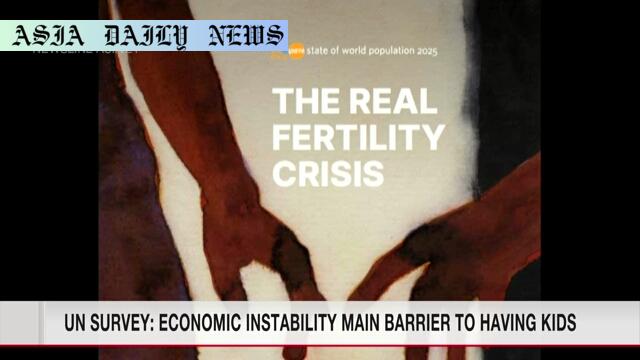Financial worries hinder ideal family sizes, survey reveals.
Financial worries top the reasons for not achieving ideal family size.
54% of respondents cite economic instability as a key issue.
UNFPA highlights lack of support systems as a critical concern.
Health challenges and future fears are secondary but significant factors.

Introduction: The Global Family Size Dilemma
Financial challenges are a significant barrier to achieving the ideal family size for many individuals worldwide. Recent findings from the United Nations Population Fund (UNFPA) underscore this pressing issue. Based on survey data collected from about 14,000 people across 14 countries, spanning both low and high fertility regions, economic instability emerged as the most dominating factor keeping families smaller than desired. This insight offers critical implications for policymakers, societies, and individuals grappling with fertility-related decisions.
Data-Driven Insights from the UN Population Survey
The UNFPA study sought opinions on the ideal number of children, with a universal preference for two children across cultures and countries. However, the reality diverges for many. A striking 54% of respondents admitted that financial worries prevented them from achieving their ideal family size. Contributors to these financial concerns include job instability, inadequate housing conditions, and the rising cost of living in an unpredictable global economy. Other notable reasons included health barriers such as infertility (24%) and existential fears about global crises like climate change and ongoing conflicts (19%).
Tackling the Fertility Crisis: A Call for Empowerment and Support
UNFPA Executive Director Natalia Kanem advocates for a paradigm shift in how societies address this issue, emphasizing the need for systemic support and empowerment. Paid family leave, access to affordable fertility care, and stronger partner support structures are vital measures she highlights. By eliminating barriers to choice, societies can tackle what Kanem calls the “true fertility crisis,” enabling people to make family-building decisions confidently without undue economic pressures. Moreover, this issue isn’t confined to countries with low fertility rates; its ramifications ripple across nations of varying demographics, emphasizing the global nature of this challenge.
The Broader Implications of Financial Barriers
As economic worries dominate as the primary reason behind unrealized family goals, other associated issues like mental health, societal expectations, and gender roles become crucial talking points. A holistic approach to tackling fertility-related challenges might not only enhance birthrates but also ensure better family well-being. Governments and social institutions need to develop robust policies that offer economic security and family-friendly environments, ranging from affordable childcare initiatives to programs addressing climate concerns, which were also identified as deterrents during the survey.
Long-Term Impact and the Road Ahead
Efforts to address the fertility crisis demand targeted strategies. While financial relief is a crucial starting point, the broader goal lies in fostering hope, security, and sustainable futures. Policymakers must consider the interconnected nature of economics, healthcare, societal roles, and environmental challenges as they craft supportive systems. Equally, private sectors and global communities must unite to create change that is inclusive, impactful, and enduring. The survey’s findings should serve as a wake-up call for urgent global action.



Commentary
Financial Struggles: A Roadblock to Family Aspirations
The findings from the UNFPA survey reveal an uncomfortable truth: financial worries continue to hold people back from realizing their family-building dreams. In a world where economic stability is becoming harder to achieve, many individuals feel caught between their aspirations and practical realities. Unfortunately, basic necessities like stable housing and secure employment are becoming luxuries rather than rights for many, forcing people to reconsider family life altogether.
Addressing More Than Finances
While it’s clear financial concerns stand at the forefront of obstacles, we cannot disregard other factors highlighted in the survey. Health-related challenges, including infertility and access to fertility treatments, underline another side of this complex issue. Furthermore, emerging global fears like climate change and political uncertainty add an emotional toll to prospective parents seeking stability. Balanced investment in economic, healthcare, and environmental policies is necessary to protect families and empower them to grow without fear.
A Shared Responsibility
Policymakers and community leaders have an opportunity – and indeed, a responsibility – to work towards resolving this global fertility crisis. Offering subsidized childcare, better healthcare coverage, and safer living environments can make a tangible difference. But beyond systemic changes, cultivating cultural awareness around family values and reducing the stigma surrounding unconventional family models is equally essential. The interplay of economics, societal support, and individual aspirations underscores the need for collaborative efforts in creating a nurturing environment for families worldwide.